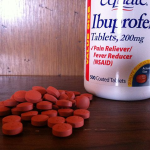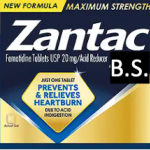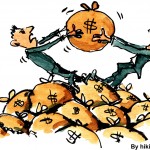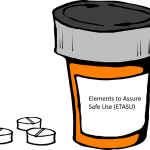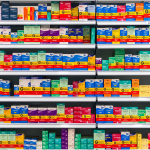Drug shortages mean that many patients are getting the second or third choice of a medicine, increasing the likelihood that the drug will be ineffective or only suboptimally effective, or have unwanted side effects. Reciprocity of approvals between the U.S. and certain other countries could help to address that.
generic drugs
Trip report: Josh goes into a Manhattan CVS to buy some Tylenol and is horrified by generic drug discrimination. Then he steals a piano.
Drug companies try all kinds of nonsense to keep selling their brand-name drugs, when the same drugs are also sold as over-the-counter store-name generics. Sanofi just started a sleazy marketing campaign trying to do just that. And it's not their first time either.
Epic patent gaming, and pay-for-delay agreements to slow-walk introduction of cheaper generics to market, helped bring us to this point. But will a growing behemoth of 750 hospitals actually lower drug prices?
The gloves are off in a battle to control the sector. Nearly 83% of hospitals are charging over twice the cost for medicines, with a majority of mark-ups between 200 and 400%. Will any fixes in store actually help patients?
Using patient safety as a bargaining chip, and a tactic of delay, is unseemly at best and immoral at worst.
Intermountain Health, a Utah-based non-profit, announced it will be leading an effort that controls 450 U.S. hospitals to make a strategic play in the generic drug market. But will fighting a consolidated industry with consolidation reduce drug costs?
What explains such a rapid rise in price for a drug that has been off-patent for years?
Dr. Josh Bloom on Science 2.0, December 2, 2014.
Just for yucks, let s go back a few years and see how well people did in forecasting drug prices in the future.
Within the past decade, we began to hear the term patent cliff the consequence of most blockbuster drugs losing patent protection during a short period of time. Perennial critics of the pharmaceutical industry were experiencing paroxysms of joy as the holy grail of health care savings generic drug companies became
In the public gets the shaft again department, there is yet another example of a failure of generic drugs to control healthcare costs one that would make companies like Pfizer, Merck, and the others green with envy.
And, of course, it s all about green, and we don t mean recycled shopping bags.
In today s you could have predicted this department, we are going to take a look back at the rather naive mindset of the American public that took center stage about five years ago.
At that time, the pharmaceutical industry was facing the patent cliff the loss of the patent life of some of the best selling drugs. Once the patent of the original discovery expires, any company is then free to manufacture the generic version of the same drug the next day.
ACSH advisor, Dr. Robert Glatter, an emergency room physician at New York s Lenox Hill Hospital, has seen more than enough. And they recently announced shortage of
